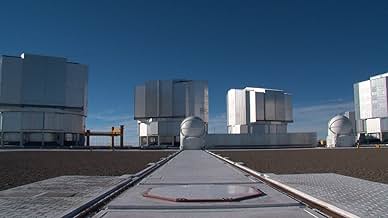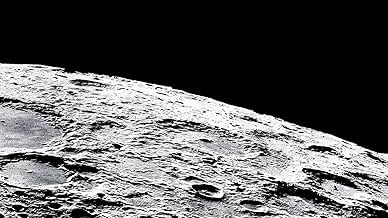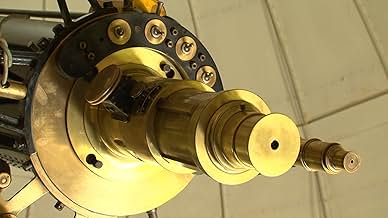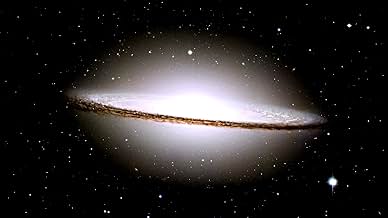अपनी भाषा में प्लॉट जोड़ेंA documentary about two different searches conducted in the Chilean Atacama Desert: one by astronomers looking for answers about the history of the cosmos, and one by women looking for the r... सभी पढ़ेंA documentary about two different searches conducted in the Chilean Atacama Desert: one by astronomers looking for answers about the history of the cosmos, and one by women looking for the remains of loved ones killed by Pinochet's regime.A documentary about two different searches conducted in the Chilean Atacama Desert: one by astronomers looking for answers about the history of the cosmos, and one by women looking for the remains of loved ones killed by Pinochet's regime.
- पुरस्कार
- 13 जीत और कुल 20 नामांकन
फ़ीचर्ड समीक्षाएं
A group of women search for their beloved ones killed during Pinochia's Military dictatorship. Astronomers discover the early beginnings of life. Archaeologists narrate the history of lost civilizations. They revisit the desert each time in search for answers to the same questions.
We shift through two realms through the ethereal sounds and sights that form throughout the film. The past, present and future constitute our lives. Amnesia is a nation's curse up until front- liners revive history.
What I found was that this isn't really a documentary in the traditional sense; yes it is real life and fact based, but we don't have a specific subject revealed or examined in the way you would expect from a historical documentary. Instead what we get is more of a musing or mediation that plays like a combination of documentary, poetry, art and science (non) fiction. This sounds pretentious but it really isn't and the way it is presented means that discussions about how there is no actual "present" and that our atoms come from the stars sit comfortably next to discussions with a woman whose parents were disappeared when she was 1 year old and a 70 year old who goes daily into the desert endlessly searching for bones of those dumped there decades prior. All of it works and is equally engaging and, more importantly, compliments each other in a way I didn't expect.
Content-wise the film has a real peaceful beauty to it while also looking at terrible situations with a lot of pain and loss. It is fitting that the film is also visually beautiful. The use of shots of galaxies spinning through the clear sky over the desert is a real help to this, but even smaller moments of a woman picking through dirt are really well shot and do not contrast with the shots of space. The visuals add to the content really well and I was surprised by how engaged I was; it wasn't that it informed me about a lot (although it did a bit) but more that it invited me to think with it, to muse with it and I really enjoyed that sensation.
As an idea it really shouldn't work at all and experience tells me it should have come out as a pretentious piece of soul searching like an art student did it, but it is nothing of the sort. It is beautiful, engaging, thought-provoking and really well filmed and constructed. Go with it – it is very good.
Yet both ignore the significance of an "insignificant" massacre that is conveniently concealed by Chilean society. The Pinochet regime. A military dictatorship that detained and slaughtered thousands of Chileans, obscuring the remaining evidence by moulding mass graves in the midst of the wilderness. A particulate in history that the modern Chilean populous have audaciously decided to ignore. However, a selection of zealous women scout the Atacama landscape foraging for fragments of shattered bones, in the glimmering hope that the remnants of their beloved will be uncovered. The human tenacity tested. A near impossible task for peace and solace. Scouring the desertification of the past, to seek comfort for the future. Much like astronomers and archeologists, these women are on the same emphatic journey for answers. All delving into the past to establish a greater understanding.
Guzmán's cinematic diary, whilst tackling the sociopolitical ignorance of the Pinochet dictatorship, existentially challenges the national application of insufficient accountability through the metaphoric connectivity between the regime's outlook and astronomy. Two initially diverse subjects somehow manufacturing a multitude of succinct links that convey the ferocious human spirit. Transitioning between various professions, utilising articulate interviews and profound commentary, to devise various associations that elude to a thematic symbiotic relationship. The female individuals foraging the desert for splinters of calcium, in the form of bone fragments, whilst astronomers scan calcium levels within the remnants of stars. Guzmán visually comparing the two through the usage of still slides. Commencing with close-ups of asteroids and moons before metamorphosing the images to bone fragments, assimilating an indistinguishable identical form. Cinematic examples such as the aforementioned further enhance the interchangeable thematic quest, searching for fractured past life in the present.
Various connections may initially seem tenuous, especially when focusing on the survivors from the Chacabuco concentration camp, but that's where Guzmán's enlightening commentary comes into fruition. Describing Lawner's time at Chacabuco, whom was referred to as an "architect" for his acute ability in memorising the prison's infrastructure by systematically counting how many steps dictated each wall, may originally seem insubstantial. Until Guzmán concludes his interview with a scholarly comment regarding Lawner's wife. The couple are a metaphor for Chile. He remembers the past, she, whom is suffering with Alzheimer's disease, is forgetting.
Circling back to the primary purpose of Nostalgia For The Light. We should never forget, but instead remember. To educate ourselves into uncovering our own origins. Bolstered by provocative imagery, with much applause aimed towards Dijon's exquisite cinematography (except the commonly used stardust filter that cheapened the cinematic quality of the documentary), and poetic narrative flow, Guzmán relentlessly tackles the parallels time offers to humanity. Physically transporting us on a self-discovering journey across the cosmos and the sprawling ground beneath our ignorant feet. We expend substantial amounts of time surveying remnants of remnants in a bid to discover answers, yet those who do not are unable to understand their past. There is no beginning or future to them. Only existence as a shell. "Compared to the immensity of the cosmos, the problems of the Chilean people might seem insignificant. But if we laid them out on a table, they would be as vast as a galaxy".
Until I watched it, I honestly didn't know that the best place in the whole world to search for light from the universe, also possesses the remaining of a mass tragedy that Chile went through. The movie brought these two things coherently, and it has this incredible comparison between a two distinct opposites, the beauty of the universe, and the ugliness of ourselves.
Somewhere in the movie one has to ask himself many questions. In a universe this vast with endless dots spreading all over its unbelievably ample space, with each dot as a whole star, smaller, similar or larger than the Sun; why do teeny tiny humans on Earth act so blindly to each others?! What is the purpose of knowing what's up there a million light years away while we still can't understand or deal with what's just beneath our noses? How come we were able to develop such powerful telescopes to look deep into outer space but not being able to develop a clearer insight to our own kind? And, how absurd it is to seek political power at any cost.
This beautiful movie provokes such questions and more, using the hardest way imaginable. Beautiful, but sad documentary.
क्या आपको पता है
- ट्रिवियाIncluded among the "1001 Movies You Must See Before You Die", edited by Steven Schneider.
- भाव
[last lines]
[in Spanish, using English subtitles]
Gaspar Galaz - Astronomer: [voiceover] I am convinced that memory has a gravitational force. It is constantly attracting us. Those who have a memory are able to live in the fragile present moment. Those who have none don't live anywhere. Each night, slowly, impassively, the centre of the galaxy passes over Santiago.
- कनेक्शनEdited into P.O.V.: Nostalgia for the Light (2012)
टॉप पसंद
- How long is Nostalgia for the Light?Alexa द्वारा संचालित
विवरण
- रिलीज़ की तारीख़
- कंट्री ऑफ़ ओरिजिन
- आधिकारिक साइट
- भाषाएं
- इस रूप में भी जाना जाता है
- Nostalgia for the Light
- फ़िल्माने की जगहें
- उत्पादन कंपनियां
- IMDbPro पर और कंपनी क्रेडिट देखें
बॉक्स ऑफ़िस
- US और कनाडा में सकल
- $1,63,962
- US और कनाडा में पहले सप्ताह में कुल कमाई
- $5,664
- 16 जन॰ 2011
- दुनिया भर में सकल
- $4,10,903
- चलने की अवधि1 घंटा 30 मिनट
- रंग
- ध्वनि मिश्रण
- पक्ष अनुपात
- 1.85 : 1
इस पेज में योगदान दें




















